★★★
“Girls just wanna have… Boxing gyms?”
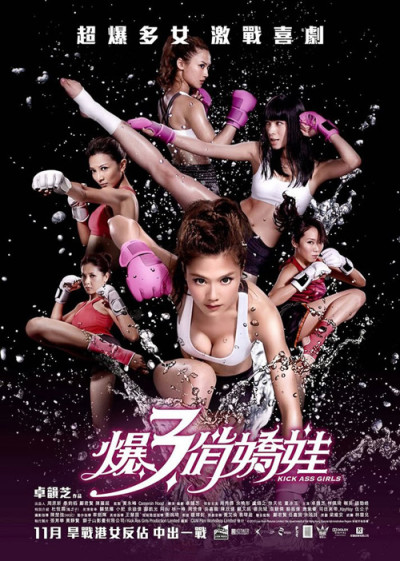 Boo (Chow) owns a failing boxing gym, and largely survives only by catering to masochistic geeks, with fantasies of being beaten up by Lara Croft, etc. To try and recoup customers driven away by her abrasive style, she hires the bubbly Miu (Lo), as a replacement for childhood friend TT (Yu), with whom she broke up after a spat over a man. Just as Miu brokers a reconciliation, the trio get an unexpected job offer, to work in Indonesia as bodyguards for the mysterious Lady Zhuge (Tong). Except, they eventually discover, this was just a lure to bring them in as fresh meat for her all-female fight club, where they must battle to the death.
Boo (Chow) owns a failing boxing gym, and largely survives only by catering to masochistic geeks, with fantasies of being beaten up by Lara Croft, etc. To try and recoup customers driven away by her abrasive style, she hires the bubbly Miu (Lo), as a replacement for childhood friend TT (Yu), with whom she broke up after a spat over a man. Just as Miu brokers a reconciliation, the trio get an unexpected job offer, to work in Indonesia as bodyguards for the mysterious Lady Zhuge (Tong). Except, they eventually discover, this was just a lure to bring them in as fresh meat for her all-female fight club, where they must battle to the death.
The intriguingly-named director is making her feature debut, having been an actress and screenwriter, after getting her start as a teenage DJ on Hong Kong radio. It’s certainly unusual to see this kind of film directed by a woman, but it seems to work, particularly in regard to the characters, who are rather more well-rounded than usual for the genre. GC also plays Zhuge’s Goth personal assistant, who may be the most endearing of the lot, and she nails the cliches of that group impeccably. The film can be divided into three sections. The first is mostly comedic; the second, after the women go to Indonesia, is the least successful, and appears to have strayed in from a chick flick; however, the third includes the bulk of the action, and is a satisfactorily crunchy finale.
There isn’t much of a character arc for anyone, and the interview used as a framing device is a mis-step, since it destroys any sense of suspense, over who will survive and what will be left of them. But I sense that suspense isn’t particularly what this is about; it’s rather concerned with light comedy, moderate martial arts, and lead actresses who generally look good doing whatever it is they’re doing. As such, even if these are undeniably low-hanging fruit, it succeeds admirably, and I’ll admit, I laughed more than I expected, especially in the early going. If this falls uncomfortably between about three different genres, and isn’t great at any of them, by no means is it horrible at them either, and I was more than adequately entertained.
Dir: Goo-Bi GC
Star: Chrissie Chow, Dada Lo, Hidy Yu, Chris Tong
Bonus: Behind the scenes footage





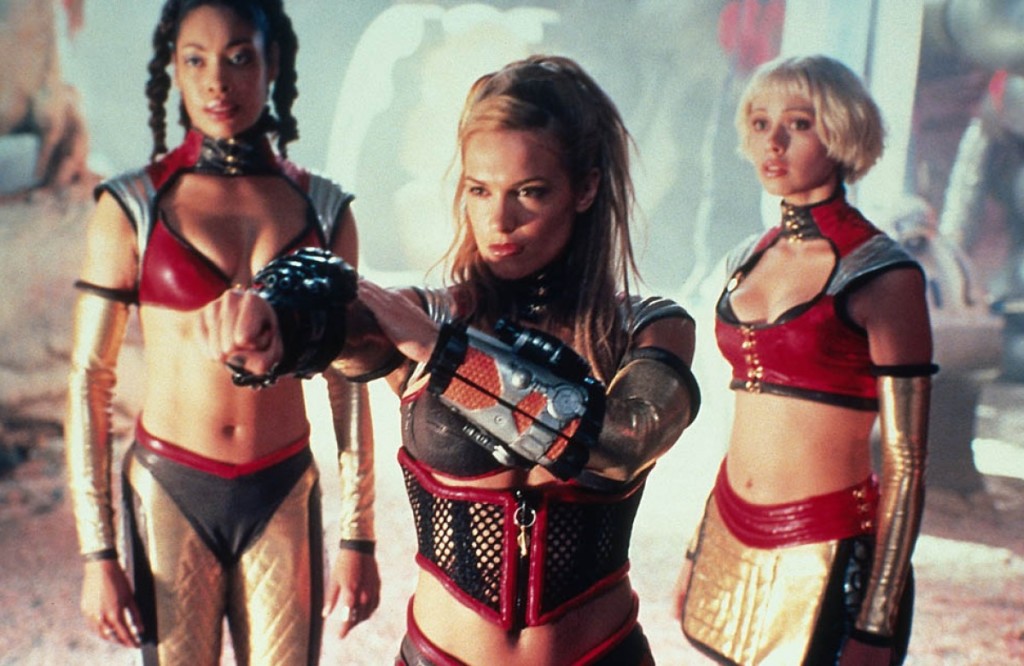 ★★★
★★★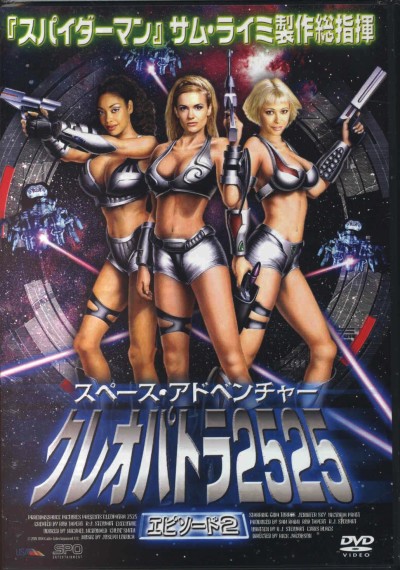 All three, however, were clearly selected as much for their visual appeal, and the 25th century is not short of beautiful people – it’s also quite warm, going by the ah, flimsy clothing worn by the trio. Cleo and her former profession fit right in. But taking any of this seriously would largely be doing the show a disservice, because it’s clear it doesn’t take itself seriously. There isn’t really time for that kind of thing, with each episode barely 20 minutes, excluding opening (theme song sung by Torres, a funked-up and lyrically altered version of Zager and Evans’ one-hit wonder, In the Year 2525) and closing credits. There isn’t much time for anything, in fact: both characterization and plotting remain about as scanty as the outfits. Hel is thoughtful but can be distant; Sarge likes shooting things first and asking questions later; Cleo, to be honest, is mostly irritating, coming over as both whiny and rather vacuous.
All three, however, were clearly selected as much for their visual appeal, and the 25th century is not short of beautiful people – it’s also quite warm, going by the ah, flimsy clothing worn by the trio. Cleo and her former profession fit right in. But taking any of this seriously would largely be doing the show a disservice, because it’s clear it doesn’t take itself seriously. There isn’t really time for that kind of thing, with each episode barely 20 minutes, excluding opening (theme song sung by Torres, a funked-up and lyrically altered version of Zager and Evans’ one-hit wonder, In the Year 2525) and closing credits. There isn’t much time for anything, in fact: both characterization and plotting remain about as scanty as the outfits. Hel is thoughtful but can be distant; Sarge likes shooting things first and asking questions later; Cleo, to be honest, is mostly irritating, coming over as both whiny and rather vacuous.








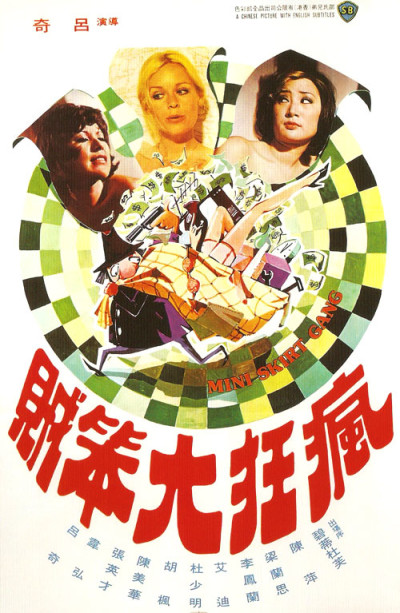 Dear god, this is awful. The only reason this 1974 film manages the dizzy heights of 1 1/2 stars, is the finale, which is actually a pretty decent burst of comedy action, highlighted by the heroine receiving inspiration from a poster advertising a Peking Opera production of the Mulan legend. Up until then, it’s a rancid piece of film-making, wasting the talents of those involved. Well, the actresses anyway, since Lui Kei provides no evidence, in either his direction or script, that there was any talent present to begin with.
Dear god, this is awful. The only reason this 1974 film manages the dizzy heights of 1 1/2 stars, is the finale, which is actually a pretty decent burst of comedy action, highlighted by the heroine receiving inspiration from a poster advertising a Peking Opera production of the Mulan legend. Up until then, it’s a rancid piece of film-making, wasting the talents of those involved. Well, the actresses anyway, since Lui Kei provides no evidence, in either his direction or script, that there was any talent present to begin with.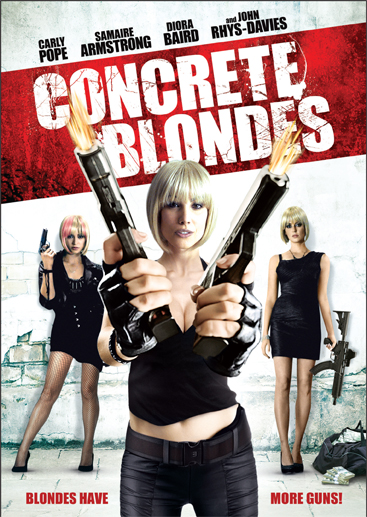 This is the story of three young women, sharing a house. There’s Kris (Pope), the sensible and apparently staid one, who works as a tax accountant; her flighty girlfriend Tara (Armstrong); and roommate Sammi (Baird). Tara and Sammi stumble into the aftermath of an apparent gangland shootout, exiting with a bag containing over $3 million in cash. The trio have very different ideas about what to do next, but Kris convinces them the best bet immediately, is to stash the bag in a lock-up, secured by three separate padlocks, with each holding one key, until they figure out if anyone is coming after the money. However, Sammi’s inability to keep her mouth shut proves disastrous, as her boyfriend is $50,000 in debt to local mob boss Kostas Jakobatos (Rhys-Davies), and sees an opportunity to clear the balance, and a lot more. Neither of the men have reckoned with Kris who, it turns out, is much more prepared for the situation than her two house-mates.
This is the story of three young women, sharing a house. There’s Kris (Pope), the sensible and apparently staid one, who works as a tax accountant; her flighty girlfriend Tara (Armstrong); and roommate Sammi (Baird). Tara and Sammi stumble into the aftermath of an apparent gangland shootout, exiting with a bag containing over $3 million in cash. The trio have very different ideas about what to do next, but Kris convinces them the best bet immediately, is to stash the bag in a lock-up, secured by three separate padlocks, with each holding one key, until they figure out if anyone is coming after the money. However, Sammi’s inability to keep her mouth shut proves disastrous, as her boyfriend is $50,000 in debt to local mob boss Kostas Jakobatos (Rhys-Davies), and sees an opportunity to clear the balance, and a lot more. Neither of the men have reckoned with Kris who, it turns out, is much more prepared for the situation than her two house-mates.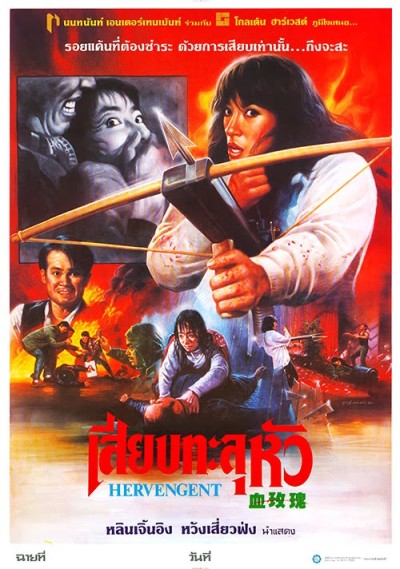 Director Lam is responsible for insane cult classic, The Story of Ricky, and if this is more restrained, it’s only by comparison. Casino manager Chieh Ying (Wong) is gang-raped by five sleazebags – and, wouldn’t you know it, they’re the same guys who killed her father. Worse is to come, as a trip to the doctor reveals a rather nasty case of venereal disease, and after some melancholic wandering around which occupies the rest of the first half (and, to be frank, is rather boring), our heroine gets tore into the villains, extracting the titular payback. Though you know the old saying, “She who seeks vengeance, must first dig two graves”? That’s a severe understatement here, because this roaring rampage will end needing an entire cemetery, costing Chieh Ying almost everybody she cares about, from her uncle, a wheelchair bound kung-fu wizard (Lam, best known for the Mr. Vampire series), to her wannabe boyfriend (Wong).
Director Lam is responsible for insane cult classic, The Story of Ricky, and if this is more restrained, it’s only by comparison. Casino manager Chieh Ying (Wong) is gang-raped by five sleazebags – and, wouldn’t you know it, they’re the same guys who killed her father. Worse is to come, as a trip to the doctor reveals a rather nasty case of venereal disease, and after some melancholic wandering around which occupies the rest of the first half (and, to be frank, is rather boring), our heroine gets tore into the villains, extracting the titular payback. Though you know the old saying, “She who seeks vengeance, must first dig two graves”? That’s a severe understatement here, because this roaring rampage will end needing an entire cemetery, costing Chieh Ying almost everybody she cares about, from her uncle, a wheelchair bound kung-fu wizard (Lam, best known for the Mr. Vampire series), to her wannabe boyfriend (Wong).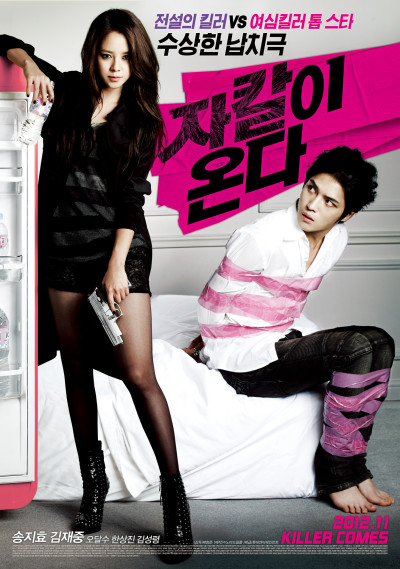 For years, an assassin known as “Jackal”, has eluded all efforts at capture, taking out targets before vanishing without trace. However, it seems that retirement is close, when a note is found, apparently left by the killer. This indicates that they are tired of the chase, and will be in a town’s low-rent hotel, waiting for the police. The cop (Han) who has been hunting Jackal is, understandably, wary and suspects a trick, but sets up a stakeout in the hotel to see what unfolds. However, already in one of the rooms there is K-Pop superstar Choi Hyun (Kim)., who had been hoping to hide out for a bit of peace and quite, only to be kidnapped by a rookie killer (Song), hired by his jilted lover. She’s apparently not very good at her job, especially after Choi convinces her he isn’t actually the star, but a celebrity lookalike. Meanwhile, a local cop (Oh) has been drafted in to help with the stakeout, and the hotel staff are proving rather less than helpful, treating the stakeout as a bonus cash-cow to be milked, rather than a chance to help the authorities.
For years, an assassin known as “Jackal”, has eluded all efforts at capture, taking out targets before vanishing without trace. However, it seems that retirement is close, when a note is found, apparently left by the killer. This indicates that they are tired of the chase, and will be in a town’s low-rent hotel, waiting for the police. The cop (Han) who has been hunting Jackal is, understandably, wary and suspects a trick, but sets up a stakeout in the hotel to see what unfolds. However, already in one of the rooms there is K-Pop superstar Choi Hyun (Kim)., who had been hoping to hide out for a bit of peace and quite, only to be kidnapped by a rookie killer (Song), hired by his jilted lover. She’s apparently not very good at her job, especially after Choi convinces her he isn’t actually the star, but a celebrity lookalike. Meanwhile, a local cop (Oh) has been drafted in to help with the stakeout, and the hotel staff are proving rather less than helpful, treating the stakeout as a bonus cash-cow to be milked, rather than a chance to help the authorities.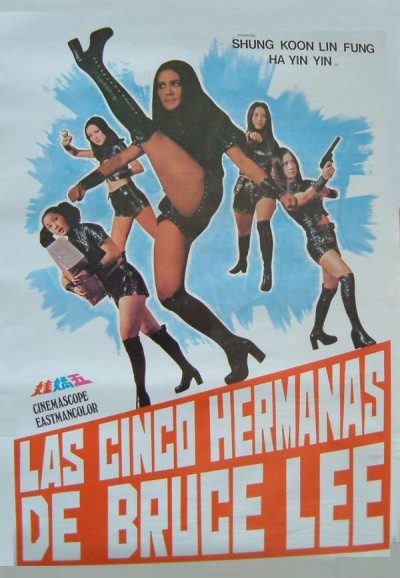 Four years after Bruce Lee’s death, and film-makers were still trying to fool moviegoers into believing their product had some connection to kung-fu’s first global star. Not sure where the deception occurred, as the print here simply overlays the new title over the (still-legible) Hong Kong one,
Four years after Bruce Lee’s death, and film-makers were still trying to fool moviegoers into believing their product had some connection to kung-fu’s first global star. Not sure where the deception occurred, as the print here simply overlays the new title over the (still-legible) Hong Kong one, 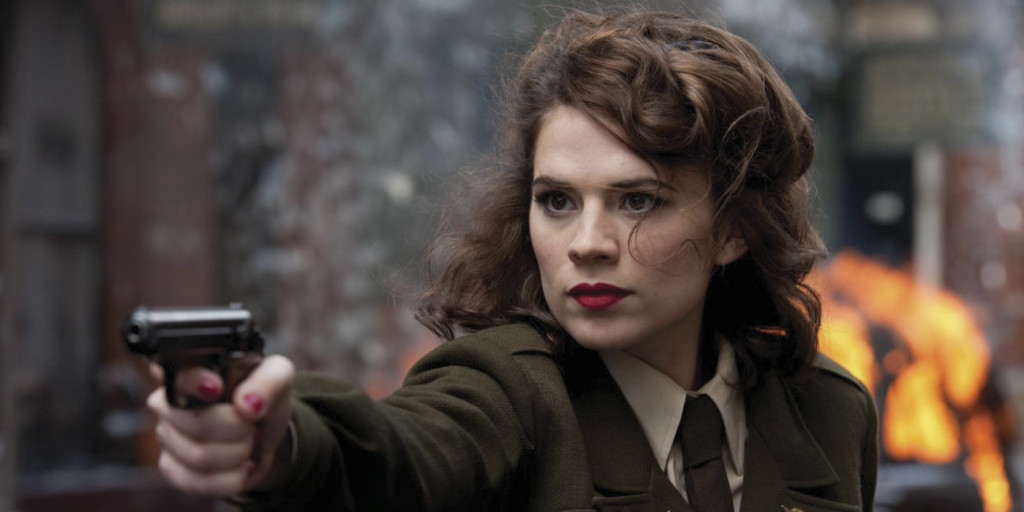 Somewhat following up on the news from February that
Somewhat following up on the news from February that 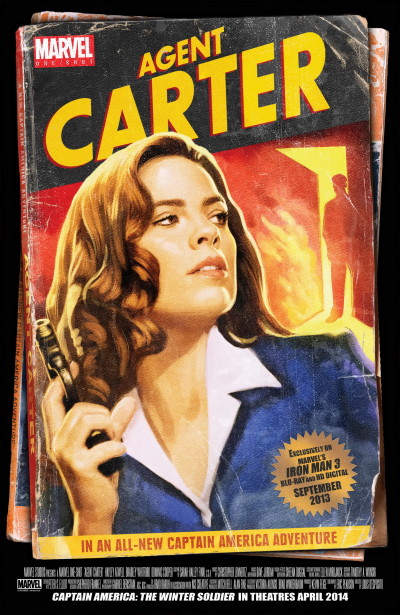 It’s largely inspired by the Marvel One-Shot: Agent Carter short film, included as a bonus feature on the home release of Iron Man 3, though as the blurb notes, Carter also played a significant role in the two Captain America films. But her character dates all the way back to May 1966 (making her virtually the same age as me!), first appearing in Tales of Suspense #77. In her comic incarnation, Carter joined the French Resistance, fighting alongside Captain American and falling in love with him, before suffering amnesia and being sent home.
It’s largely inspired by the Marvel One-Shot: Agent Carter short film, included as a bonus feature on the home release of Iron Man 3, though as the blurb notes, Carter also played a significant role in the two Captain America films. But her character dates all the way back to May 1966 (making her virtually the same age as me!), first appearing in Tales of Suspense #77. In her comic incarnation, Carter joined the French Resistance, fighting alongside Captain American and falling in love with him, before suffering amnesia and being sent home.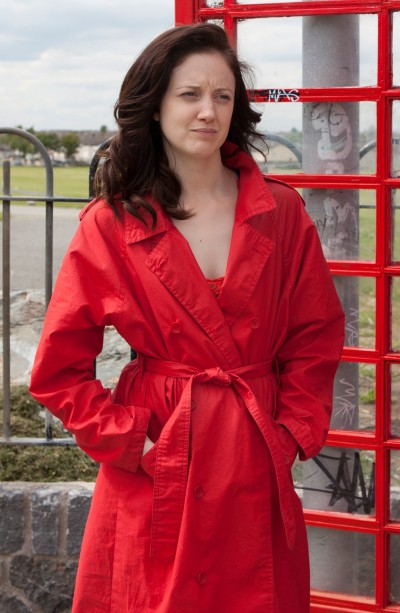 It’s 1993, and the peace process in Northern Ireland is cautiously inching forward – though there are some who prefer a more robust method of rebellion, shall we say. Among them is Collette McVeigh (Riseborough) whose little brother was killed by the British Army when she was 12. Along with her brothers Gerry (Gillen, whom you’ll know as Littlefinger from Game of Thrones) and Connor, she is part of the armed struggle, until a mission to plant a bomb in London leads to her capture. MI5 officer Mac (Owen) gives her a stark choice: face a long stretch in prison, separated from her children, or become an informer on her own family. Collette chooses the later, perhaps influenced by Mac showing her it was an IRA sniper who killed her brother. But it soon becomes clear more is at play, with Mac’s boss (Anderson) apparently intent on sacrificing Collette, in order to protect another, more valuable asset.
It’s 1993, and the peace process in Northern Ireland is cautiously inching forward – though there are some who prefer a more robust method of rebellion, shall we say. Among them is Collette McVeigh (Riseborough) whose little brother was killed by the British Army when she was 12. Along with her brothers Gerry (Gillen, whom you’ll know as Littlefinger from Game of Thrones) and Connor, she is part of the armed struggle, until a mission to plant a bomb in London leads to her capture. MI5 officer Mac (Owen) gives her a stark choice: face a long stretch in prison, separated from her children, or become an informer on her own family. Collette chooses the later, perhaps influenced by Mac showing her it was an IRA sniper who killed her brother. But it soon becomes clear more is at play, with Mac’s boss (Anderson) apparently intent on sacrificing Collette, in order to protect another, more valuable asset.